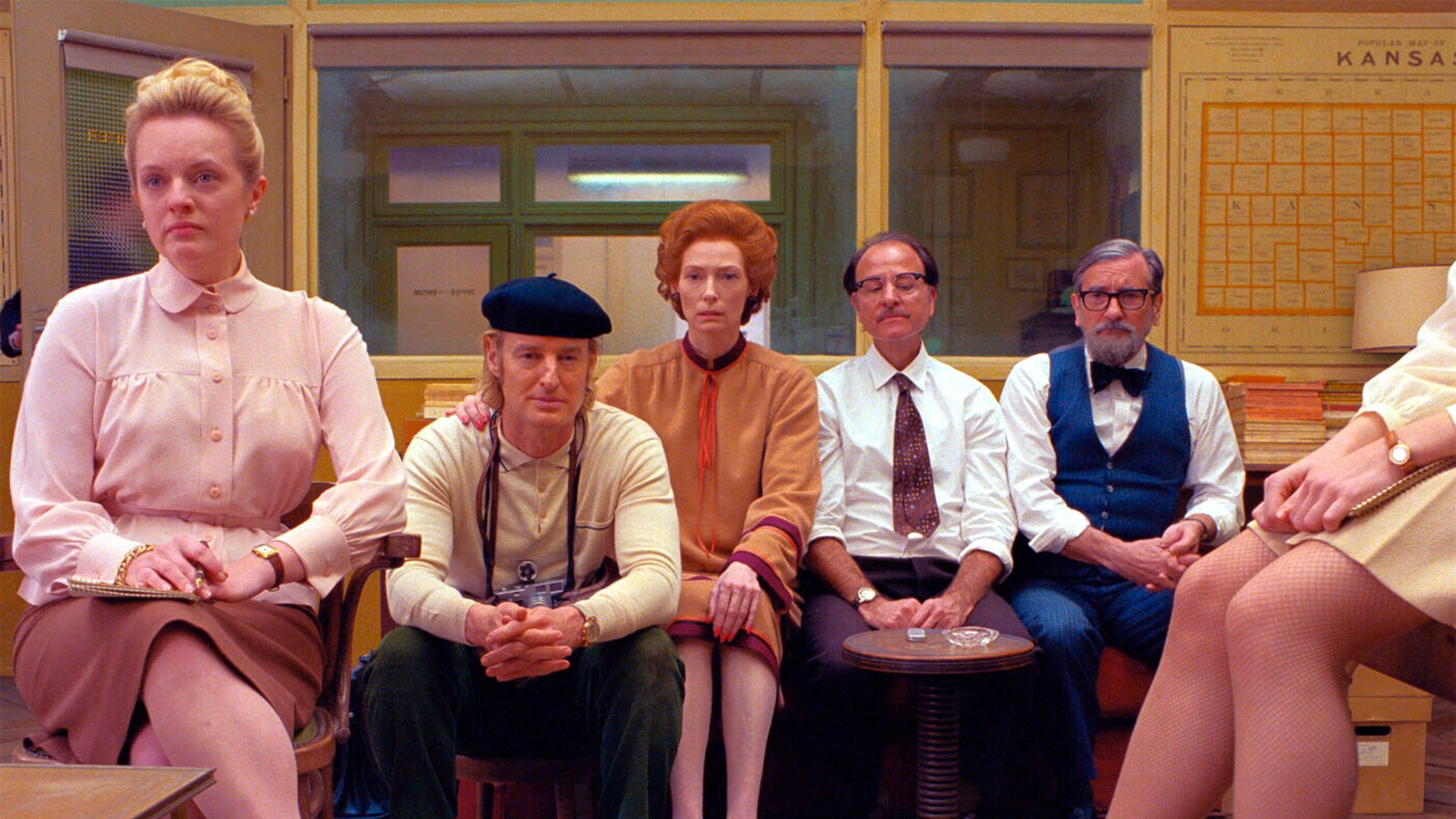What to Watch Verdict
The French Dispatch is as rich and poignant an experience as any of Anderson's other films, albeit with exhausting caveats.
Pros
- +
Anderson's visual stylism is as immaculate as ever
- +
The ode to journalistic storytelling is incredibly heartfelt
- +
Jeffrey Wright gives an absolutely standout performance
Cons
- -
The use of florid voiceover narration contributes to an exhausting overload of stimuli
- -
The editorial framing device is appreciated, but perhaps underdeveloped
Marketing has hailed The French Dispatch as Wes Anderson's love letter to journalism, which in reality is something of a half-truth. After all, a journalistic report can be as simple as a recitation of current events, but Anderson is not simply interested in those who report on the news of the world. His film is instead an ode to the kinds of storytellers who use the materials of reality paints for their canvas, transforming the world into fodder for florid prose and implicit insights into the human condition.
It’s a laudable pursuit to spotlight such reporters, particularly for a modern age where such storytelling is antithetical to chasing algorithms and to the fake news grifters who uphold the confirmation biases of their audiences. And for as much as the film is inherently playing to Anderson’s stylistic strengths, it also threatens to overwhelm with too much of a good thing.
Structured as a sort of auteurist take on an anthology film, The French Dispatch chronicles the articles of the titular publication’s final issue, so ultimate because of its editor’s (Bill Murray) sudden demise. After a brief introduction to the evolving French landscape of the 1970s by a bicycling Owen Wilson, the film settles into a rhythm of performing the contents of three narrative articles through the lens of their reporters’ narration.
An art reporter (Tilda Swinton) gives a presentation on the artistic genius of a convicted murder (Benicio del Toro), his prison guard muse (Léa Seydoux) and the art dealer (Adrien Brody) bent on making a fortune off of him. An investigative journalist (Frances McDormand) gets in deep with the leader of a youth protest movement (Timothée Chalamet) and his greatest detractor, a contrarian obsessed with her pocket vanity (Lyna Khoudri). A food critic (Jeffrey Wright, purposely evoking the spirit of James Baldwin in the film’s best performance) recounts a study of so-called “police cooking” as performed by the notable Nescaffier (Stephen Park) that escalates into the kidnapping of the police commissioner’s son, culminating in an animated high-speed pursuit.
Each of these narratives provides ample opportunity for Anderson’s immaculately calculated brand of filmmaking to shine through. Dollhouse shot composition gives way to purposely staged diorama freeze frames where the camera moves past frozen props and actors. Stark monochromatic cinematography bursts alive with color as specific passages of sense memory illuminate the author’s narrative language. Witty ripostes work in tandem with sharp slapstick and visual gags, edited in such rapid succession that you’re sure not to catch everything in a single viewing. And this is all in service to a film that highlights the raw humanity of its subjects, even as their realities are so farcically heightened that you can’t help but recognize the artifice of these supposedly true events.
And yet, there’s an underlying issue with The French Dispatch in its construction, one that prevents the film from reaching the upper echelons of Anderson’s work. Perhaps Anderson is simply uncomfortable with an anthology format, but without a consistent through line to the individual stories — besides the occasional appearance of Bill Murray to provide editorial insight by way of framing device — the film leans heavily on Anderson’s penchant for ostentatious voiceover narration to highlight each author’s thoughts and experiences throughout their reportage.
Ostensibly, these voiceovers represent the written word of each of the authors’ respective articles, but the constant barrage of such dense material overlaying Anderson’s already dense visual composition can make it exhausting to keep up with the sheer amount of stimuli at any given time, until you’re tempted to simply let the film mindlessly wash over you in a wave of pretention. It also further highlights that, when Anderson is in such a monologuing mode, his characters have trouble breaking free from a sort of default cadence, a somewhat fatal flaw for a film that is meant to be exploring the divergent narrative styles of three distinct journalistic voices.
The latest updates, reviews and unmissable series to watch and more!
Even so, this probably just means that The French Dispatch is better suited to episodic spurts of viewership, even though the film doesn’t even reach the two-hour mark. The contents of the film are as rich and as poignant as Anderson ever is, so the reductive take that Wes Anderson fans will enjoy it is still assuredly accurate. But one must question whether this installment in his filmography will have the staying power of his previous works, or, like the breed of journalist it portrays, it will become a relic, albeit a fondly remembered one.
Leigh Monson has been a professional film critic and writer for six years, with bylines at Birth.Movies.Death., SlashFilm and Polygon. Attorney by day, cinephile by night and delicious snack by mid-afternoon, Leigh loves queer cinema and deconstructing genre tropes. If you like insights into recent films and love stupid puns, you can follow them on Twitter.


